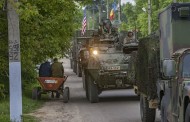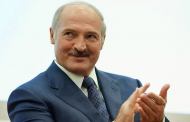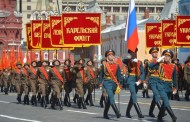“Erdogan is not the solution to the problem, but a part of it,” noted an Italian journalist commenting on the meeting between the German chancellor Angela Merkel, and the Turkish prime Minister Ahmed Davutoglu, on February 8.
The reference was obviously to the “dark side” of Turkish establishment: from the accusation of its involvement with the illegal oil traffic of ISIS to the military actions against the Kurds in the south-eastern region of the country to the repression of basic human rights such as freedom of expression and press. Let’s just say that Erdogan’s policy does not exactly march with the fundamental European values. But the European Union, or better said Angela Merkel, now desperately need the help of Turkey to cope with the increasing flow of refugees from Syria and to counterbalance the outcome of a possible victory of the Damascus-Moscow-Teheran alliance in Syria. We can sum up the behavior of the German chancellor with the title that the weekly newspaper Der Spiegel dedicates to the meeting between Merkel and Turkish president Recep Tayyip Erdogan: “She doesn’t like him, but she needs him.”
The refugee issue, in fact, is now threatening the stability and the most important achievement of the European integration process, such as the freedom of circulation in the Schengen area. And it is threatening also the popularity of the German chancellor: in 2017, in fact, Germany will face legislative elections and the immigration policy will be one of the main topics in the electoral campaign. So, after the initial “welcoming attitude” toward refugees coming into Europe, now Merkel needs to contain the inflows of Syrian migrants that will increase in the next months due to the major counter-offensive launched by the Russian air forces and the Syrian government to free the Aleppo province from the jihadist groups. This is one of the reasons why Merkel counts on Erdogan to cope with the refugee issue, and after meeting the Turkish president three times from the beginning of the year, decided to give away 3 billion euro from the European treasury to help Turkey to deal with the Syrian refugees on its territory and to contain the flow to Europe.
Turkey is now hosting 2.5 million Syrians on its territory and this is one of the most serious consequences of the Syrian crisis in Turkey’s domestic policies. For that reason now Turkey is trying to turn the refugee issue into a profitable business and into a diplomatic weapon for the Turkish ambition on the accession to the European Union.
According to the documents leaked to the euro2day.gr website, Erdogan would not be happy with “only” 3 billion euros from Bruxelles to fix the refugee issue, and some analysts have stated that probably on the next European meeting on February 18-19, the Turkish government will formulate further requests as the contribution of five billion euros instead of three, and the introduction of a free-visa regime in the Schengen area from the beginning of the second part of the year 2016 that will allow almost 80 million Turks to enter the EU without any control. In this way the European borders will be technically extended until Syria and Iraq, that is to say to the border with countries in the grip of war, instability and ISIS, with all the implications that this means.
Many European countries are therefore skeptical about the potential role of Turkey as a European ally to face the refugee crisis. On February 15, the representatives of the four countries of the Visegrad group, Poland, Hungary, Slovakia and the Czech Republic, expressed their disagreement on Merkel’s commitment to face the refugee crisis with the help of Turkey. The Visegrad group also stated on Monday that the results of the Eu-Turkey action plan are “not satisfying” and, therefore, Europe needs to start thinking of “alternative plans.” Of course, the division of the European Union on this issue bring advantages to the Turkish counterpart.
Further criticism of the German strategy is coming from large sectors of the society and political scene of the EU. The Merkel ally in the refugees crisis, in fact, does not exactly embody the fundamental principles of the EU, and more than a scandal came out in the last months on the Turkish management of the refugee crisis.
With the internal offensive against the Kurds of the Kurdistan Workers Party (PKK) in the south-eastern region of the countries, the government is keeping on hitting hundreds of civilians. Turkish establishment has also become famous for his repression of the opposition and for the lack of freedom of expression. So, when Merkel visited Davutoglu, the first page of the opposition daily newspaper Cumhuriyet, reported a thorny question written next to the pictures of the German chancellor: “do you know that our journalists are in prison?” The question clearly referred to the former director of the newspaper, Car Dundar, imprisoned for having published evidence of the transit of weapons and ammunition in Syria through the Turkish border with the connivance of the Turkish government. Many others journalists and members of civil society are now in prison for criticizing the Turkish president in the newspapers or social networks.
Last, but not least, Erdogan’s establishment was charged with the accusation of being involved in the ISIS illegal oil traffic and of connivance with this terrorist organization from different sides. So, how far pragmatism could justify this unusual and problematic partnership? And, above all, will Europe really take advantage of it? For now, it seems it will not.
comments powered by HyperComments






